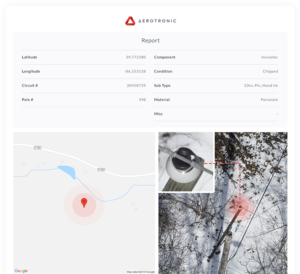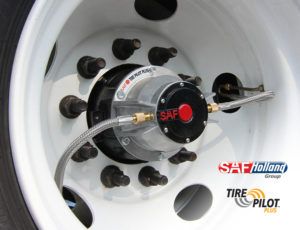PlanetM, the mobility-focused brand and business development program of the Michigan Economic Development Corporation (MEDC), has announced the six new startups that have been awarded a total of more than US$450,000 in the latest round of Mobility Grant funding.
The PlanetM Mobility Grants encourage mobility startups and corporations to deploy their technologies in Michigan or prove out their technology at the state’s advanced testing facilities that include: Mcity at the University of Michigan (UM), American Center for Mobility (ACM), GM Mobility Research Center (GMMRC) at Kettering University (KU), and Michigan Unmanned Aerial Systems Consortium (MUASC). The six new startups aim to address current mobility and transportation challenges, including traffic congestion reduction and improved pedestrian and road safety. PlanetM will partner with the NextEnergy innovation agency to support project management services for each of the pilot programs.
 The third round of recipients of PlanetM’s Mobility Grants are:
The third round of recipients of PlanetM’s Mobility Grants are:
- Propelmee (US$100,000) is a self-driving technology company founded in 2016, and headquartered in the UK. Propelmee has chosen Michigan as the first location outside of the UK, to expand its development and testing operations internationally, where it will demonstrate an industry-first approach to autonomous driving, without any dependency on prior 3D high definition mapping;
- Headquartered in Traverse City, Michigan, Aveopt (US$100,000) specializes in the development of software and system solutions for the emerging Unmanned Aerial Systems (UAS) or drones market. The company, teamed with Atlas Space Operations, the Michigan Department of Transportation (MDOT), Consumers Energy, and Michigan Technological University (MTU), will through the MUASC perform simulation tests and evaluations of its UTM Performance Arbitration System (UPAS) across wireless and satellite communications infrastructures;
- GoKid (US$90,000), an award-winning, venture-backed carpooling solution for schools, teams and families, which aims to help improve school attendance, and reduce traffic and congestion in front of schools. An initial set of schools has been selected for the pilot rollout of its GoKid Connect carpool system;

- Centered in Ann Arbor, Intvo (US$60,000) develops software that detects and predicts pedestrian behavior, especially in high-risk scenarios, to ensure a safe environment for all road participants. Collaborating with the University of Michigan Transportation Research Institute (UMTRI), the company will initially deploy its technology on the streets of Ann Arbor. Intvo’s current technology is able to detect pedestrians in the crosswalk and broadcast a personal safety message to any DSRC-equipped vehicles in the vicinity. Intvo’s software goes one layer deeper, enhancing these capabilities by enabling earlier detection and prediction, and more accurate warnings;
- Working in conjunction with DTE Energy, Aerotronic (US$50,000) will be piloting a remote sensing technology solution that captures vegetation and pole-top data for the utility industry, using machine learning to analyze remote sensing data and eliminate business process inefficiencies;
AKTV8 (US$50,000) specializes in control systems and components for electronically adjustable suspension to improve ride comfort, handling and safety. Alongside Saf-Holland, AKTV8 will test a new generation electronic tire inflation system for Class-8 trailers. The new SMAR-te Tire Pilot system is a combination the SAF’s Tire Pilot Plus tire inflation system and AKTV8’s patented iAir control system that can estimate the load of the trailer and electronically inflate and deflate all tires for optimized road contact.





